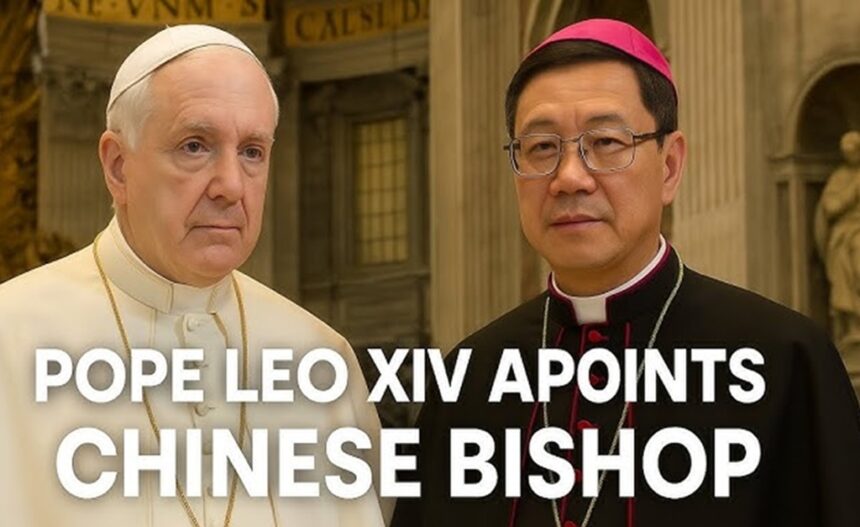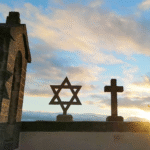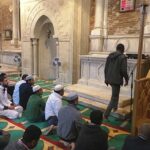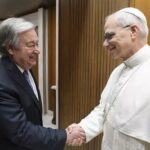VATICAN CITY – Pope Leo XIV, the first American to lead the Catholic Church, has chosen Bishop Joseph Lin Yuntuan as auxiliary bishop of Fuzhou. This is his first appointment of a Chinese bishop since the Vatican’s 2018 agreement with the Chinese Communist Party (CCP).
The Vatican shared the news of Lin’s nomination on 5 June, with Chinese officials recognizing it on 11 June. Pope Leo’s decision signals intent to keep working within the same arrangement his predecessor, Pope Francis, started. But this new appointment has reignited disputes about the Vatican’s relationship with Beijing, the CCP’s power over China’s Catholics, and the ongoing repression of Christians in the country.
A Deal That Divides
The 2018 agreement between the Vatican and China tried to heal a rift that split China’s 12 million Catholics between the official, government-backed church and the underground church loyal to Rome. The deal, renewed several times, lets Beijing suggest candidates for bishop while allowing the pope to approve or reject them.
Supporters saw it as a step toward unity and a way to normalize bishops who had taken office without the Vatican’s blessing. The hope was that it might also improve ties broken since the Communist rise to power in 1949.
But the terms of the deal are secret, causing suspicion on all sides. Vatican officials claim it provides stability and helps ensure bishops in China remain loyal to Rome. In a statement after Lin’s appointment, the Vatican said the move was a sign of progress in their talks with Chinese authorities and an important step for the diocese.
Many critics, especially from conservative Catholic groups and human rights organizations, view the deal as giving too much ground to Beijing. Cardinal Joseph Zen, the former archbishop of Hong Kong, called the agreement a “betrayal,” warning it would put Catholics at greater risk. The lack of openness has only deepened fears that the Vatican is letting the CCP take control over church matters.
Ongoing Disputes Over the Accord
Since its signing, the deal has faced repeated problems. In 2022 and 2023, Chinese officials named bishops without Vatican consent, including in Shanghai and an unrecognized diocese in Jiangxi. The Vatican said these moves broke the agreement, but Pope Francis later accepted the appointments, showing how fragile the deal really is.
Before the conclave that elected Leo XIV, officials in Shanghai and Xinxiang held preliminary elections for bishops without the pope’s approval, causing more friction.
Many say the agreement has done little to protect underground Catholics from harassment and punishment for staying loyal to Rome. The secrecy around the deal fuels worries about whether it helps Catholics in practice.
Cardinal Zen warned in 2018 that the deal would have lasting, damaging effects on the church in China and beyond, hurting its credibility. Human Rights Watch has called on Pope Leo XIV to review the agreement, saying it does not protect religious freedom.
Bishop Lin, who is 73 and was ordained secretly in the underground church in 1984, has now become a case study for the deal’s success or failure. The Vatican expressed approval that Chinese authorities accepted his nomination, but some observers see this as just a formality.
Beijing has pushed “sinicisation” under President Xi Jinping, which means churches must show loyalty to the state and display national symbols, raising more concerns about religious freedom.
Christianity Under Pressure in China
China’s estimated 12 million Catholics and the wider Christian community face tough restrictions from the CCP, which keeps close watch over religious activities. Only five religions are officially recognized, and even these are strictly controlled. The Chinese Catholic Patriotic Association (CCPA) oversees the official church, while underground Catholics who refuse to join face surveillance, harassment, and even jail.
Several Catholic bishops remain imprisoned, missing, or under house arrest, including James Su Zhimin, Augustine Cui Tai, and Joseph Zhang Weizhu, according to the Hudson Institute.
Many underground priests have been arrested or banned from their duties for refusing to join the state church. Bob Fu from ChinaAid says the current crackdown under President Xi is the harshest since the Cultural Revolution, citing forced abortions, sterilizations, and organ harvesting as part of the repression of religious minorities.
China’s advanced tracking technology makes life even harder for believers. The authorities monitor movements and watch for signs of religious activity. Underground churches face raids and have their crosses and signs removed, while even legal, government-run churches must spread state propaganda. This makes it nearly impossible for Catholics to practise their faith fully and openly.
Wider Religious Crackdown
The CCP’s tight controls don’t just affect Catholics. State measures also hit Buddhists in Tibet, Muslims in Xinjiang, and Protestants throughout the country. The disappearance of the Panchen Lama and Beijing’s grip over the Dalai Lama’s succession highlight the regime’s interference in religious leadership. Evangelical Protestant groups have seen strong growth but now face raids, closures, and arrests.
Religious leaders who resist state control often pay a steep price. The CCP updated its rules for religious figures in 2020, claiming the right to appoint bishops on its own, which further undermines the Vatican agreement. This fits with Beijing’s wider approach to prevent any group, religious or otherwise, from becoming independent of the Party. Fu told a religious summit in Tokyo in July 2024 that Chinese Christians are suffering their worst persecution since the 1970s.
The Vatican’s Challenge Under Pope Leo XIV
Pope Leo XIV faces a complex situation as he steps into his role. By supporting the 2018 agreement through Bishop Lin’s appointment, he seems to back Pope Francis’ preference for dialogue over conflict. “The Pope’s move shows a willingness to support reconciliation instead of antagonism,” said Michel Chambon of the Asia Research Institute. Still, many critics argue this supports a broken system, with some saying online that nothing has changed and that the underground church is being abandoned.
Pope Leo faces calls to speak out for China’s persecuted Catholics while keeping the door open to talks with Beijing. Human Rights Watch has encouraged him to demand the release of jailed clergy and more transparency in the agreement. Some in the Vatican want the Holy See to publicly call out China’s violations, hoping to restore trust. Others fear that walking away from the deal could increase persecution and end even the slim relationship with Beijing.
The Vatican’s ties with Taiwan, one of the few places that still recognizes Taipei over Beijing, further complicate things. China’s foreign ministry says it is open to better relations with the Vatican, but only if it drops ties with Taiwan and stays out of China’s religious affairs.
The appointment of Bishop Lin shows Pope Leo XIV is willing to keep working within the Vatican’s agreement with China, even as problems and violations continue. The deal has led to some positive steps, like regularising bishops, but has also brought new challenges and deepened divisions. Catholics in China remain caught between loyalty to Rome and the demands of the state.
As Pope Leo shapes his leadership, many will watch to see whether he sticks with the deal, tries to improve it, or walks away. For now, he seems to be choosing careful engagement, but the ongoing crackdowns and pressure on China’s faithful mean this issue is far from settled. The future of the Vatican’s credibility and the freedom of China’s Catholics rest on what happens next.







